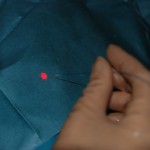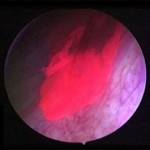Fellowships – a key ingredient or the ‘icing on the cake’?
 What is the ultimate endpoint of a residency or speciality training program? Is it to complete 5 or 6 years of training in core urological procedures? Is it to produce safe, competent independent urologists? Is it to achieve FRSC (Urol) certification? In an ideal world it would be a marriage of all three; a safe, competent, independent, certified, practising urologist ready and eager to tackle any urological referral. In reality, we know that not to be the case.
What is the ultimate endpoint of a residency or speciality training program? Is it to complete 5 or 6 years of training in core urological procedures? Is it to produce safe, competent independent urologists? Is it to achieve FRSC (Urol) certification? In an ideal world it would be a marriage of all three; a safe, competent, independent, certified, practising urologist ready and eager to tackle any urological referral. In reality, we know that not to be the case.
Urology is a broad and advancing speciality encompassing patients of all ages and both sexes involving a complexity of benign and malignant pathologies. It is unrealistic to be an expert in all the sub-specialties and be able to offer the best and least invasive treatments to our patients. Furthermore, with a necessary emphasis on patient safety, transparency and proficiency, surgical training programs face significant barriers in affording trainees the opportunity to operate, specifically in the working time directive era.
Fellowships are usually undertaken at the completion of higher surgical training scheme often in a centre of excellence overseas. Fellowships offer trainees intensive experience in their niche area. On completion of a coveted fellowship, trainees hope to have acquired and polished the required skills to practice independently in their chosen field.
A recent pan European survey of 219 urological residents demonstrated laparoscopy and robotics were available in 74% and 17% of centres respectively [1]. Only 23% of trainees report their exposure as ‘satisfactory’. 68% have not completed a laparoscopic radical nephrectomy as first operator. Despite this 81% are considering fellowships in laparoscopy.
Buffi et al., have called for a validated and structured training curriculum in robotic surgery [2]. Trainees acknowledge the challenges in the acquisition of such skills but the modularisation of training is the best way to learn a procedure. Step by step trainees can piece together the operations. Hours spent on simulators and in dry and wet laboratories enhances these techniques. Furthermore, the dual consoles offer invaluable experience in robotics, however, are scarcely available.
The governing bodies have a responsibility to maintain standards of training as well as a duty towards patients. Proficiency in modern techniques such as laparoscopy and robotics are deficient in most training programs. Training programs need to encompass these techniques in a modular fashion from an early stage to develop the skills of tomorrows’ urologists [3]. Fellowships will undoubtedly foster and enhance these skills but a core knowledge and technical proficiency even in a simulator setting should be encouraged.
In truth, our learning and development never should never stop.
‘Live as if you were to die tomorrow. Learn as if you were to live forever’ Mahatma Gandhi
Mr Gregory Nason is a Specialist Registrar in Urology at the University Hospital Limerick, Ireland
References
- Furriel FTG, Laguna MP, Figueiredo AJ, Nunes PT, Rassweiler JJ. Training of European urology residents in laparoscopy: results of a pan-European survey. BJU Int 2013; 112: 1223–28.
- Buffi N, Van Der Poel H, Guazzoni G, Mottrie A, on behalf of the Junior European Association of Urology (EAU) Robotic Urology Section with the collaboration of the EAU Young Academic Urologists Robotic Section. Methods and Priorities of Robotic Surgery Training Program. Eur Urol 2013; epub ahead of print.
- Lee JY, Mucksavage P, Sundaram CP, McDougall EM. Best practices for robotic surgery training and credentialing. J Urol 2011; 185: 1191-7.




The need for fellowship training ultimately depends on how your residency training is structured. Without naming any places, there are some places where surgical exposure is excellent, and residents learn to perform complex surgeries (including minimally invasive lap/robotic procedures) well enough that fellowship training is not required, from a purely technical point of view. In other places, residents don’t do much and fellowship training is must. Also some programs may be extremely well versed in certain areas and not at all in others.
As a North American, I would say that the outside-of-the-operating-room networking/research opportunities are as important, if not more important, than the actual technical aspect of it.